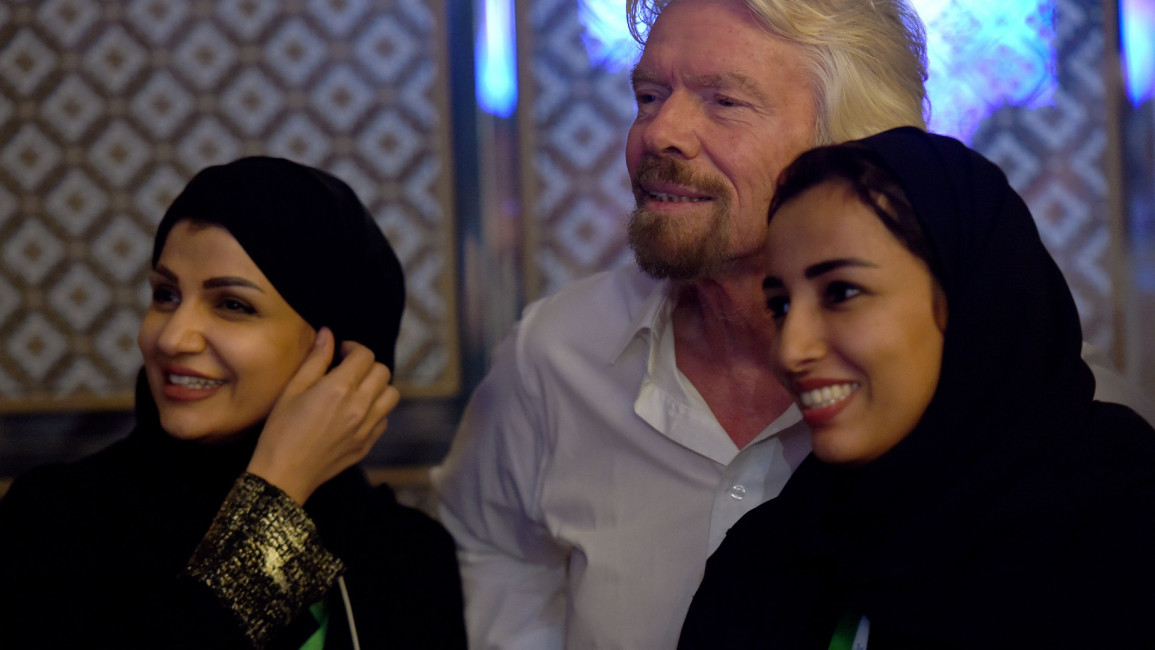
Do we really need 'women's empowerment'?
These vision statements are written in corporate language with a special emphasis on diversifying the economy. They are also aligned with international development agendas and almost all involve organisations like the UNDP, the World Bank, UN Women and their various branches of NGOs.
At the heart of these visions, the role of women has become flavour of the day, and seemingly "adding women" is now synonymous with progress, modernity and enlightenment.
But who wrote these programmes, and does their vision really represent "progress"?
The market society mindset they preach was written by white, global management consulting firms focusing on an effective and proactive private sector that produces and reproduces capitalism. As a result, women's empowerment has been tied to the notion of entrepreneurship. Just as national vision statements are couched in corporate language, the inclusion of women, and "women's empowerment" abounds in academic and policy literature.
The 2030 Sustainable Development Goal number 5 stipulates the achievement of gender equality and empowerment of all women and girls. UN Women's seven Economic Empowerment Principles were written to squarely match the desires of multinational corporations and business enterprises which have recently included women's empowerment programmes in their training and development plans.
 |
This version of an empowered woman is in fact exclusionary and, crucially, inaccessible to most women |  |
Today, civil society organisations, NGOs and political campaigns across the MENA have all incorporated women's empowerment in their agendas. Mainstream media capitalises excessively on this term too, and presents us with a vision of what an empowered woman looks like.
Further, the media, state and corporate feminism's image of empowered women is one where she effortlessly succeeds in being a self-made leader, a mother, and entrepreneur all at once. Gulf states have included this version of women (which doesn't discount domestic duties) in their agendas, as per the will of the global marketplace.
It comes as no surprise then, that these "empowered women" too often represent the interests of western dominance in the MENA region and their elite Arab partners.
Colonialism comes in many forms, but colonising women has always been, and will always be a coloniser's fetish. In his book, A Dying Colonialism, Frantz Fanon describes how in order to "destroy the Algerian society, [and] its capacity for resistance," the colonial administration had to "conquer their women", by infiltrating the private sphere, and luring them into "liberation" from the veil.
In fact, the veil has always been perceived as a symbol of backwardness and tradition which colonial efforts have viciously sought to destroy. Today, colonial endeavours, disguised as neoliberal regimes and development programmes ensure the modern day perpetuation of such efforts.
Twitter Post
|
Mayssoun Sukarieh's article 'The First Lady Phenomenon' says just that, as she compares Naglaa Mahmoud, the wife of Egypt's former president, Mohammed Morsi, with Queen Rania of Jordan and Asmaa al-Assad of Syria. Sukarieh shows how the media portrayal of Naglaa Mahmoud resembled backwardness, a return to tradition, and an example of disempowerment, whereas Queen Rania and Asmaa al-Assad were portrayed as symbols of modernity, progress and empowerment.
Read more: Saudi Arabia opens military recruitment to women
The women Queen Rania and Asmaa Al-Assad surround themselves with in their various NGOs come from the same cultural, class and - mostly western - educational backgrounds, whose aim is to maintain the status quo. Across the MENA and especially in the Gulf states, we see many women look up to the Queen Rania model.
But this version of an empowered woman is in fact exclusionary and, crucially, inaccessible to most. While NGOs and civil societies invite working class women to participate, they are expected to aspire to becoming like the elite empowered woman. Rather than encourage them to reflect on their own definition of empowerment, they are led to join rigid leadership, entrepreneurial and management training programmes designed to serve the interests of white, neoliberal agendas, and check off the "empowered women" criteria.
Many of these programmes are not only inaccessible to, but also unaffordable to the majority of women. Moreover, they fail to address the structural issues imposed by patriarchal systems, and hardly ever support women in confronting, for example, exploitation or violence.
 |
They are led to join rigid leadership, entrepreneurial and management training programmes designed to serve the interests of white, neoliberal agendas |  |
Moreover, becoming empowered requires women to have power handed down to them, rather than finding it as something inherent. And that's the role of these neoliberal institutions: Through their reports, they come up with a reductionist criteria for women's empowerment, most of the time aligned with national interests. Women are denied the agency to choose for themselves, but should be willing to accept the will of others.
Because the language of law and politics was written predominantly by men and for men, women have had little or no room to write in their own terms. Women's way into the public sphere via "empowerment" programmes has become the only way to practice some form of agency and gain rights in the social, economic and political domains, however marginal.
I do not write this to discourage women who might benefit from such programmes, but I do invite us to rethink and question this term, so that we might one day realize our full potential.
Shaikha Al-Hashem is a writer and researcher from Kuwait focusing on women, migrant workers and the political economy. She is also a PhD Candidate at The European Graduate School, in the Philosophy, Art and Critical Theory (PACT) Programme. Her specialisation is in women and gender studies.
Follow her on Twitter: @AlHashemShaikha
Have questions or comments? Email us at: editorial-english@alaraby.co.uk
Opinions expressed in this article remain those of the author and do not necessarily represent those of The New Arab, its editorial board or staff.



